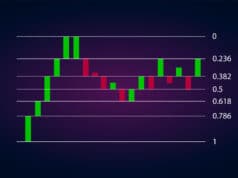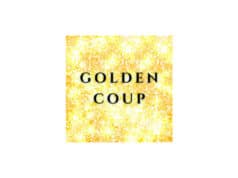Overview
They say there are many ways to skin a cat, a befitting statement when considering the forex markets. The most important consideration about this instrument is the differences in the exchange rates between pairs.
This is the fundamental attention point regardless of the method in which someone trades. However, some forex markets are uniquely designed since they serve different functions from their counterparts.
This article will explore the variances between the spot, futures, options, and spread betting markets in forex.
Spot
The spot forex market is perhaps the most popular trading method because it enjoys inexhaustible liquidity (the highest of all global financial markets), is simpler to understand, and the leverage is very flexible. Both retail and institutional traders engage in spot currencies for profiting off pricing movements.
We refer to this instrument as spot because when you execute a position, the ‘contract’ to either buy or sell a specific currency pair occurs within milliseconds or ‘on the spot’ (although technically, actual settlement occurs in one or two business days; known as T+1 or T+2, respectively).
Spot also means one trades according to a specific exchange rate at that present moment. So, for example, if you open a buy trade on EUR/USD, you effectively own specific units of euros at the current pair price immediately and are obligated to hold the order for any potential losses or gains.
Spot forex operates through a multitude of decentralized or over-the-counter market makers (interbank institutions, brokers, etc.) through an ECN (electronic communication network).
Futures
Futures are expiry contracts requiring the bearer or holder to buy or sell a currency pair at a set exchange rate at a later date in the future. Typically, the deal needs to be settled after the contract expires, though in many cases, this occurs before.
The purpose of any future has always been to hedge against some risk. While retail traders also partake in this market for speculative purposes, many of the players here are large institutions regularly receiving international large forex transactions.
One way businesses use this instrument is if they need to purchase a foreign currency at some point in time, they may consider futures to lock in a fixed exchange rate to avoid price volatility that may occur in the interim.
Conversely, the same reasoning applies if they expect payment in a foreign currency at some later moment. One can only trade standard forex futures through an official centralized exchange like the Chicago Mercantile Exchange rather than over-the-counter.
Options
Options operate similarly to futures; the only difference with the former is the contract is obligatory where there will always need to be a settlement, while in options, there is no responsibility.
Hence, we typically describe options as a financial derivative allowing a trader the right but not the obligation to go long on or short a currency pair at an agreed-upon price (known as the strike price).
Like futures, there is an expiry date for every contract. A buyer or seller of an option has to pay what is called a ‘premium.’ When you do a purchasing deal, it is a call option; when it’s a selling deal, it is a put option.
The advantage of options is if the buyer or seller decides to opt out of the transaction (due to either a decline or increase in price, respectively), they are only liable for the premium since there was no obligation to hold what they bought or sold.
Traders speculate options through official well-funded, and well-regulated exchanges. Alternatively, one can also trade this instrument using over-the-counter brokers like in spot forex.
Spread betting
Spread betting is a unique approach to trading forex and is favored mainly in the UK and other parts of Europe. What separates this method from something like the spot market is the trader does not engage in an actual traded position or owns the underlying asset (although leverage is still present).
Spread betting does operate comparably to spot forex (it is also traded through a broker), except that instead of trading, one places a bet on whether the instrument will be higher than the bid price (buying) or lower than the ask price (selling).
In simpler terms, one bets on whether they think the price will go higher or lower according to a particular number of points. Technically, one is not betting on a difference between the spread but instead hopes to profit depending on the points a pair moves without effectively trading it.
Furthermore, spread betting is tax-free (free from capital gains tax or stamp duty in all jurisdictions as it is technically considered gambling) and commission-free (as brokers make money on the spread).
Conclusion
Whether you trade spot, options, futures, or spread-bet, the same technical and fundamental factors drive the currencies market overall. Interestingly, there are different reasons why someone would trade futures in forex rather than spot or trade both simultaneously.
The spot market is primarily for profit speculation from a retail and institutional perspective and is the simplest way to trade currencies. While one can achieve profit in the futures, fundamentally, this instrument is for institutional investors hedging against currency risk.
Options operate similarly to spot forex, except they offer a unique way of managing losses in paying the premium (although they are more complex to understand, unlike spot). For hedging purposes, a trader may, for instance, buy EUR/USD in the spot market while also doing a put option on the same pair.
Spread betting is similar to spot, except that it mimics gambling (hence, ‘betting’) and offers tax-free and commission-free trading.




